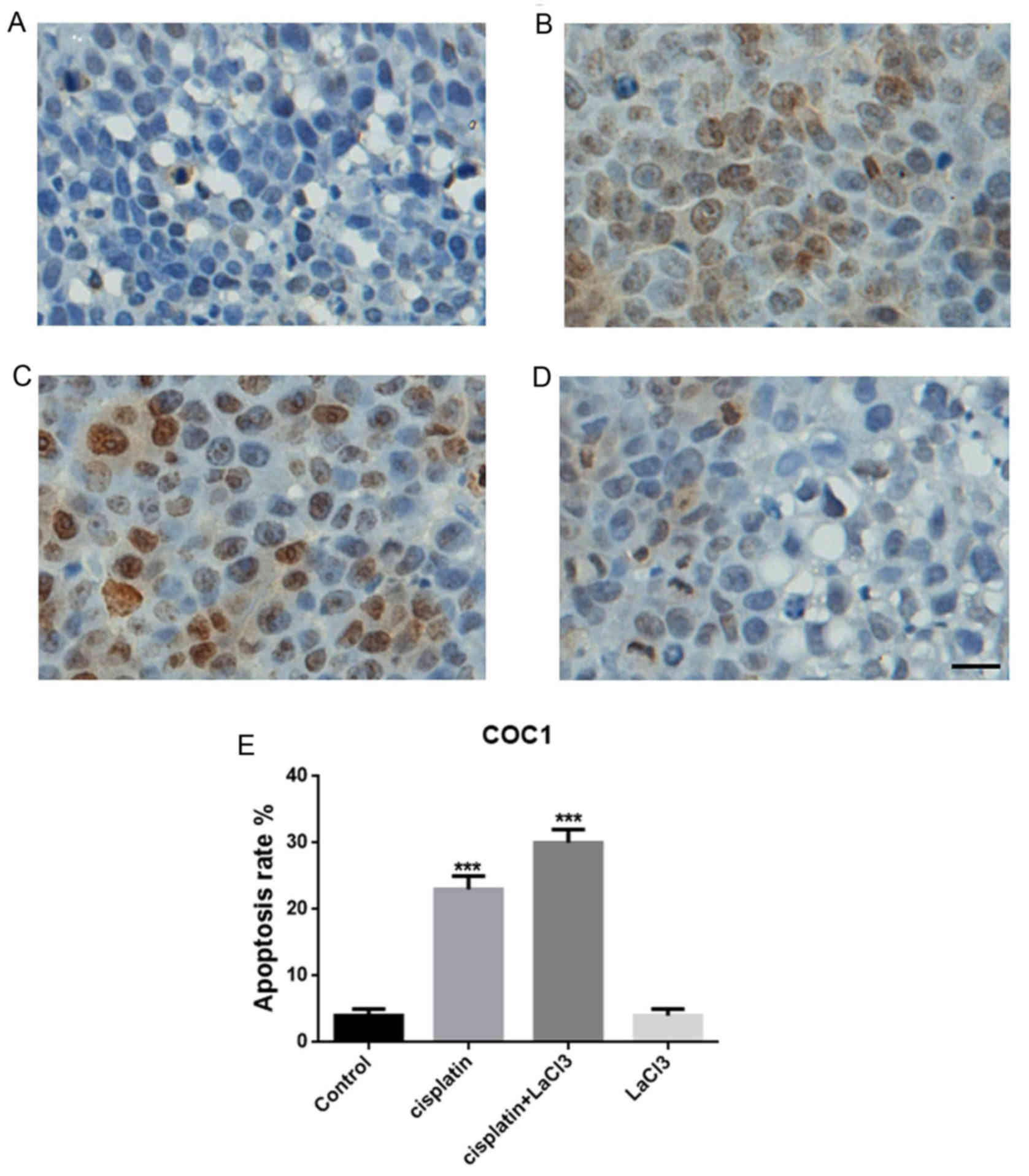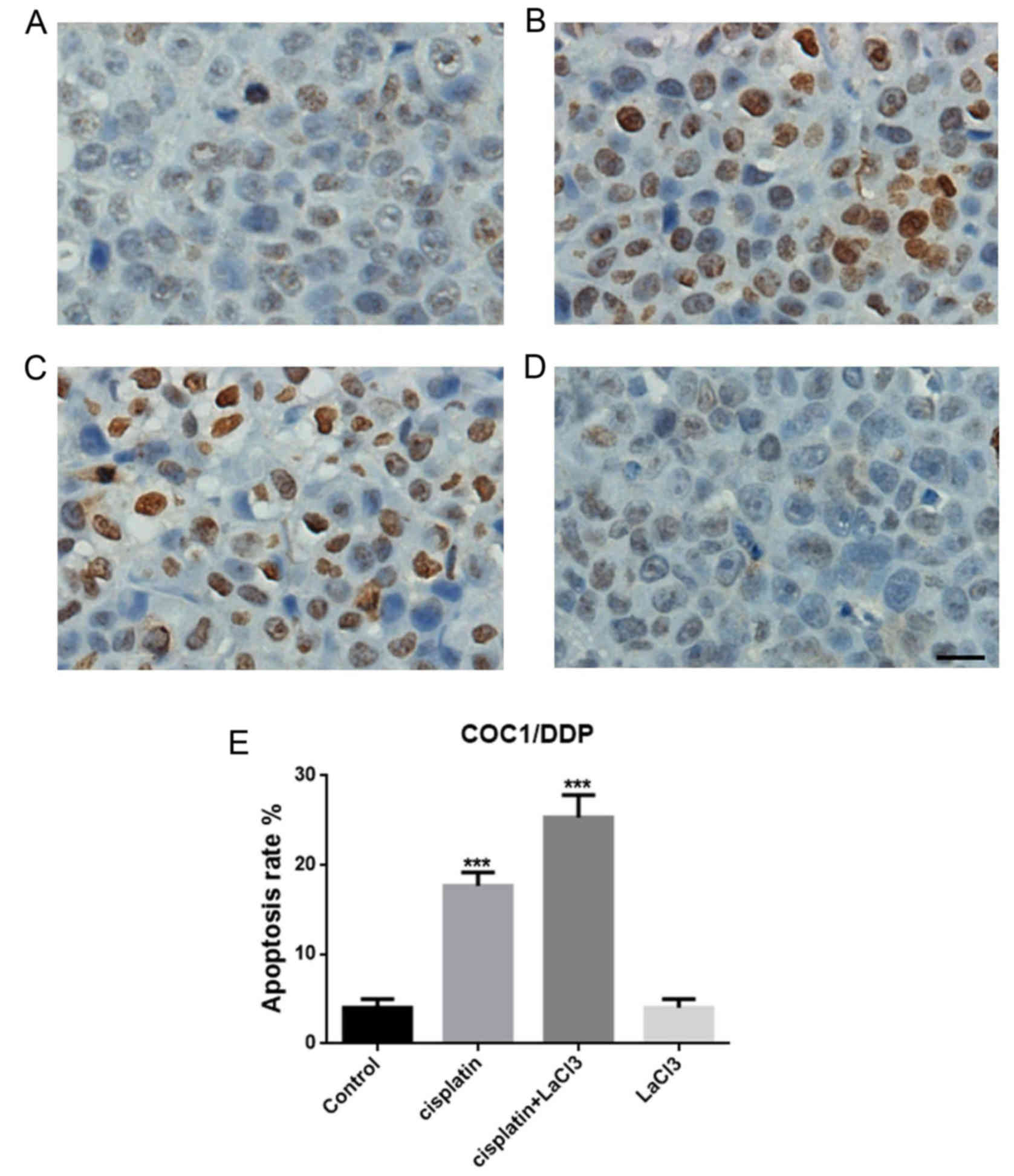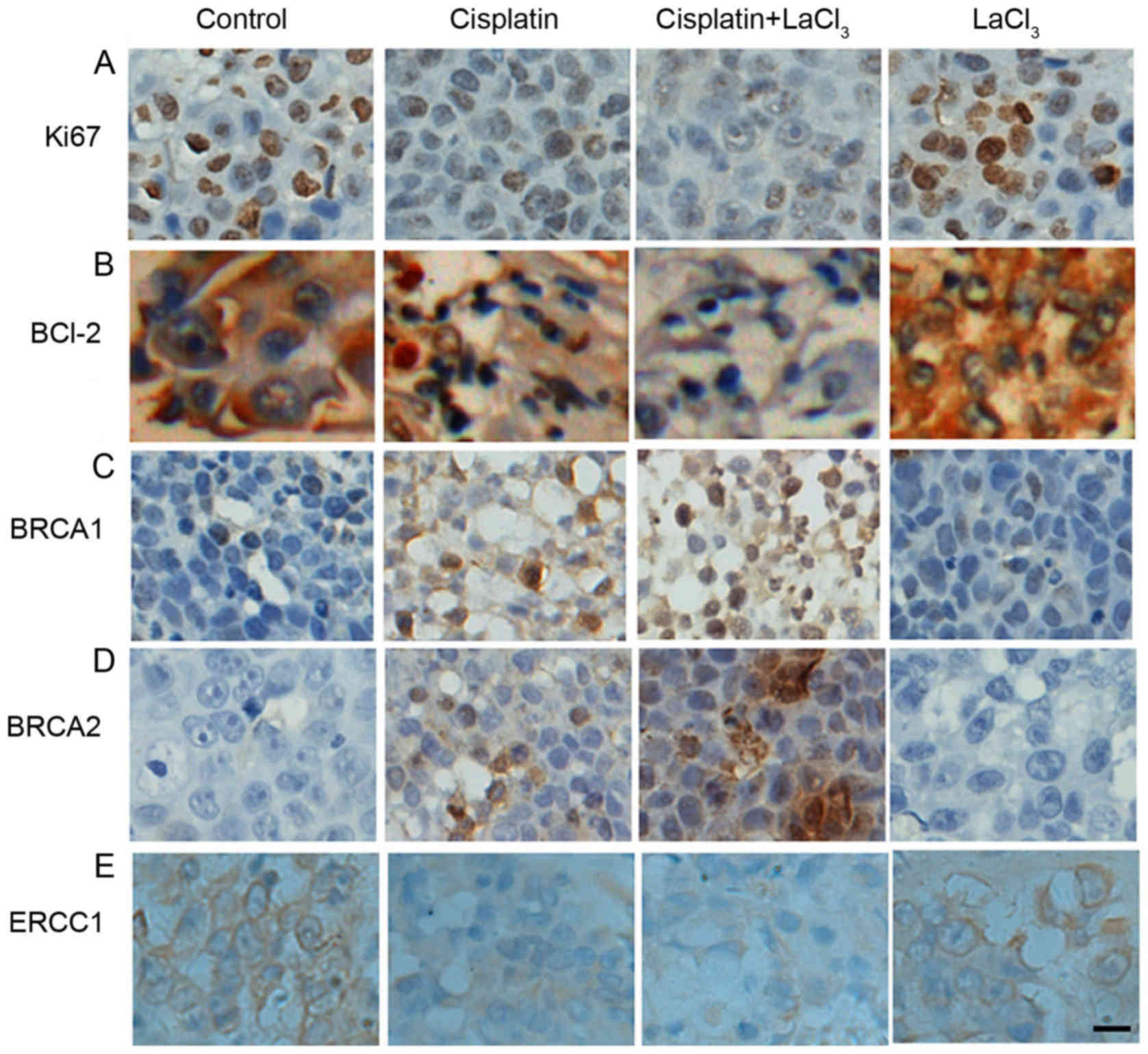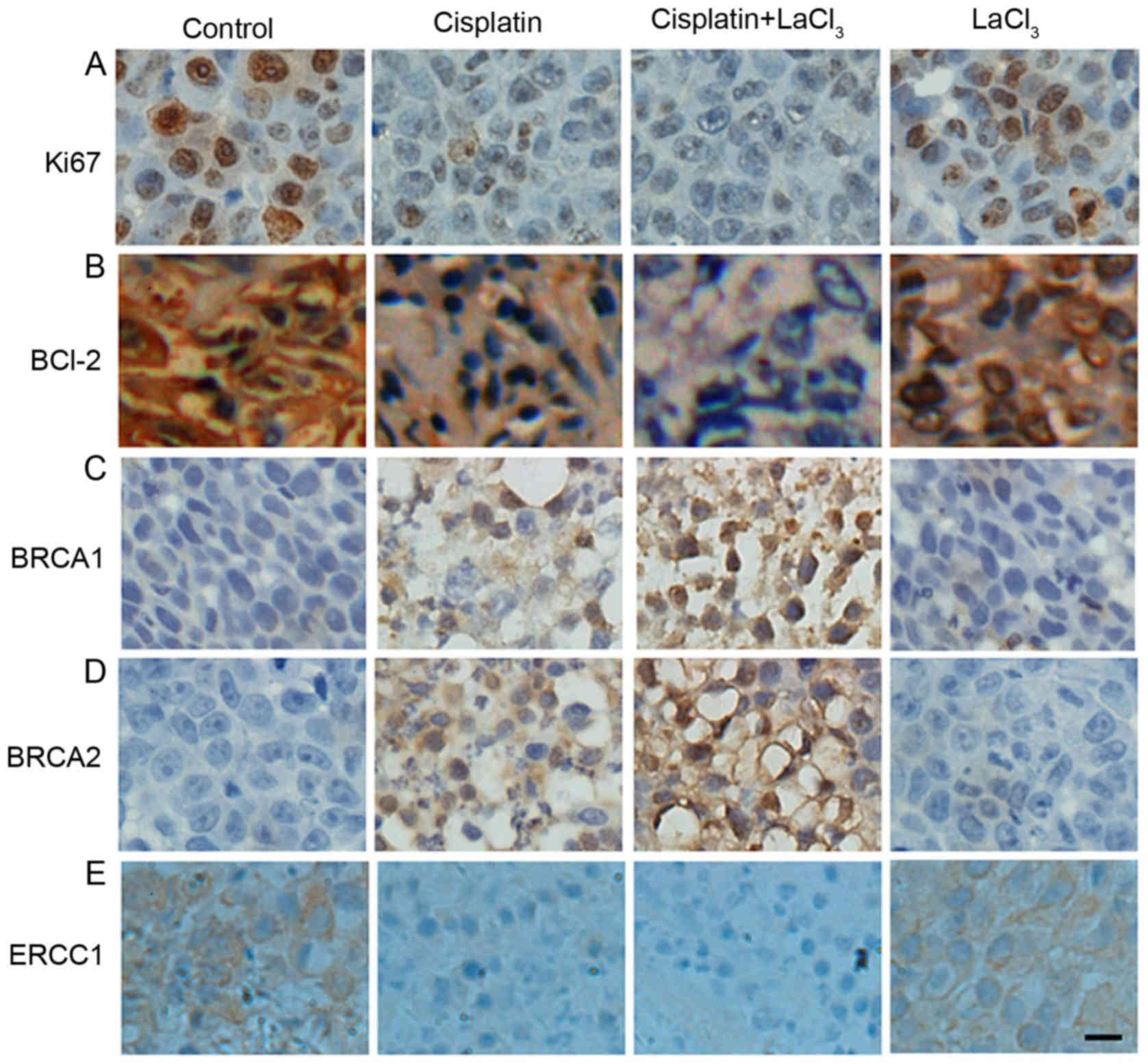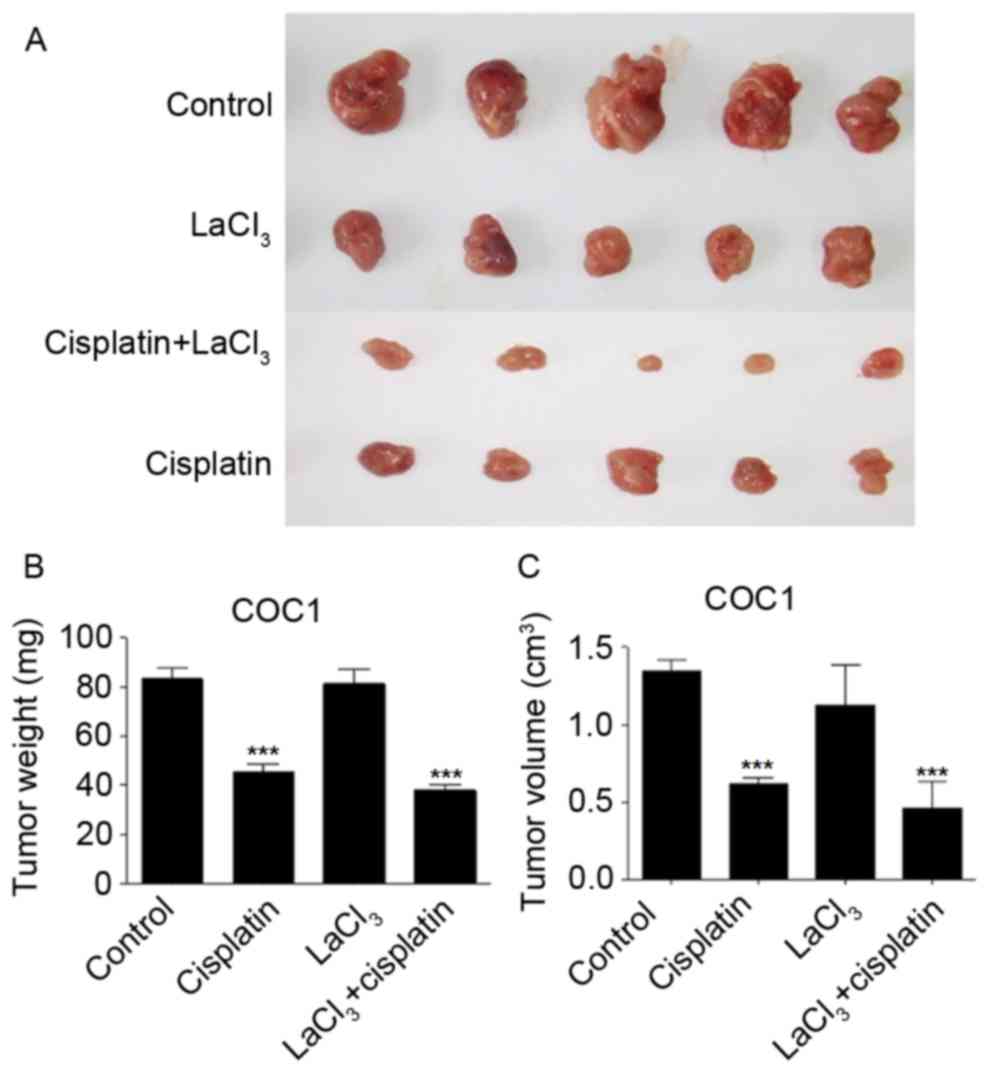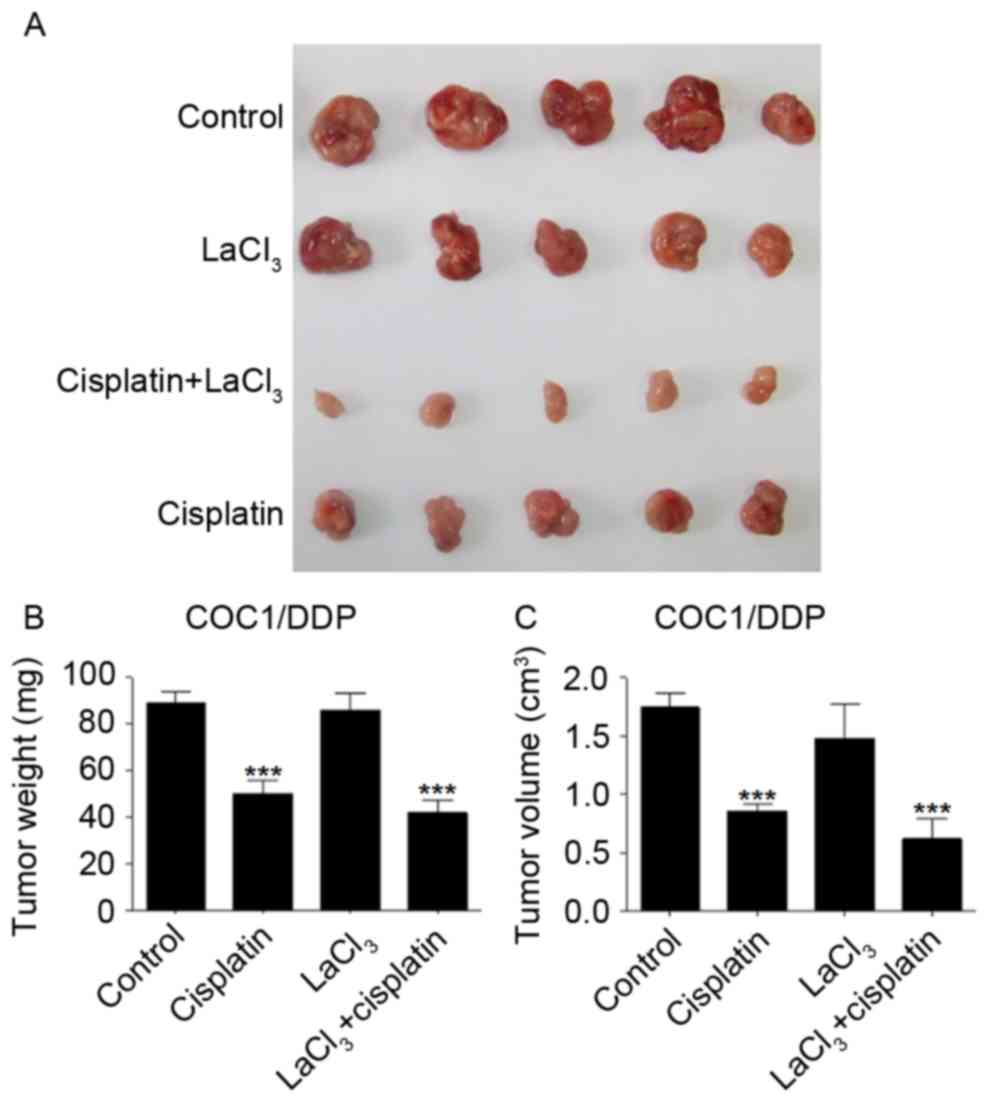|
1
|
Cress RD, Chen YS, Morris CR, Petersen M
and Leiserowitz GS: Characteristics of long-term survivors of
epithelial ovarian cancer. Obstet Gynecol. 126:491–497. 2015.
View Article : Google Scholar : PubMed/NCBI
|
|
2
|
Petrillo M, Anchora LP, Scambia G and
Fagotti A: Cytoreductive surgery plus platinum-based hyperthermic
intraperitoneal chemotherapy in epithelial ovarian cancer: A
promising integrated approach to improve locoregional control.
Oncologist. 21:532–534. 2016. View Article : Google Scholar : PubMed/NCBI
|
|
3
|
Baldwin LA, Huang B, Miller RW, Tucker T,
Goodrich ST, Podzielinski I, DeSimone CP, Ueland FR, van Nagell JR
and Seamon LG: Ten-year relative survival for epithelial ovarian
cancer. Obstet Gynecol. 120:612–618. 2012. View Article : Google Scholar : PubMed/NCBI
|
|
4
|
Baldwin L, Ware R, Huang B, Tucker T,
Goodrich S, Podzielinski I, DeSimone C, Ueland F, van Nagell J and
Seamon L: Ten-year relative survival for epithelial ovarian cancer.
Gynecol Oncol. 120 Suppl 1:S34–S35. 2011. View Article : Google Scholar
|
|
5
|
Kapoor S: Lanthanum and its rapidly
emerging role as an anti-carcinogenic agent. J Cell Biochem.
106:1932009. View Article : Google Scholar : PubMed/NCBI
|
|
6
|
Durgo K, Halec I, Sola I and Franekić J:
Cytotoxic and genotoxic effects of the quercetin/lanthanum complex
on human cervical carcinoma cells in vitro. Arh Hig Rada Toksiko.
62:221–227. 2011. View Article : Google Scholar
|
|
7
|
Shen L1, Lan Z, Sun X, Shi L, Liu Q and Ni
J: Proteomic analysis of lanthanum citrate-induced apoptosis in
human cervical carcinoma SiHa cells. Biometals. 23:1179–1189. 2010.
View Article : Google Scholar : PubMed/NCBI
|
|
8
|
Dai Y, Li J, Li J, Yu L, Dai G, Hu A, Yuan
L and Wen Z: Effects of rare earth compounds on growth and
apoptosis of leukemic cell lines. In Vitro Cell Dev Biol Anim.
38:373–375. 2002. View Article : Google Scholar : PubMed/NCBI
|
|
9
|
Shi P and Huang ZW: Proteomic detection of
changes in protein synthesis induced by lanthanum in BGC-823 human
gastric cancer cells. Biometals. 18:89–95. 2005. View Article : Google Scholar : PubMed/NCBI
|
|
10
|
Zhang J, Li Y, Hao X, Zhang Q, Yang K, Li
L, Ma L, Wang S and Li X: Recent progress in therapeutic and
diagnostic applications of lanthanides. Mini Rev Med Chem.
11:678–694. 2011. View Article : Google Scholar : PubMed/NCBI
|
|
11
|
The guide for the care and use of
laboratory animals. Ilar J. 56:2015.
|
|
12
|
Heffeter P, Jakupec MA, Körner W, Chiba P,
Pirker C, Dornetshuber R, Elbling L, Sutterlüty H, Micksche M,
Keppler BK and Berger W: Multidrug-resistant cancer cells are
preferential targets of the new antineoplastic lanthanum compound
KP772 (FFC24). Biochem Pharmacol. 73:1873–1886. 2007. View Article : Google Scholar : PubMed/NCBI
|
|
13
|
Heffeter P, Jakupec MA, Körner W, Wild S,
von Keyserlingk NG, Elbling L, Zorbas H, Korynevska A, Knasmüller
S, Sutterlüty H, et al: Anticancer activity of the lanthanum
compound [tris(1,10-phenanthroline)lanthanum(III)]trithiocyanate
(KP772; FFC24). Biochem Pharmacol. 71:426–440. 2006. View Article : Google Scholar : PubMed/NCBI
|
|
14
|
Zhang Z, Wang J, Li J and Xu S:
Telomerase-mediated apoptosis of chicken lymphoblastoid tumor cell
line by lanthanum chloride. Biol Trace Elem Res. 144:657–667. 2011.
View Article : Google Scholar : PubMed/NCBI
|
|
15
|
Rubio-Viqueira B, Jimeno A, Cusatis G,
Zhang X, Iacobuzio-Donahue C, Karikari C, Shi C, Danenberg K,
Danenberg PV, Kuramochi H, et al: An in vivo platform for
translational drug development in pancreatic cancer. Clin Cancer
Res. 12:4652–4661. 2006. View Article : Google Scholar : PubMed/NCBI
|
|
16
|
Hausser HJ and Brenner RE: Phenotypic
instability of Saos-2 cells in long-term culture. Biochem Biophys
Res Commun. 333:216–222. 2005. View Article : Google Scholar : PubMed/NCBI
|
|
17
|
Kos Z and Dabbs DJ: Biomarker assessment
and molecular testing for prognostication in breast cancer.
Histopathology. 68:70–85. 2016. View Article : Google Scholar : PubMed/NCBI
|
|
18
|
Cleary ML, Smith SD and Sklar J: Cloning
and structural analysis of cDNAs for bcl-2 and a hybrid
bcl-2/immunoglobulin transcript resulting from the t(14;18)
translocation. Cell. 47:19–28. 1986. View Article : Google Scholar : PubMed/NCBI
|
|
19
|
van Duin M, de Wit J, Odijk H, Westerveld
A, Yasui A, Koken MH, Hoeijmakers JH and Bootsma D: Molecular
characterization of the human excision repair gene ERCC-1: cDNA
cloning and amino acid homology with the yeast DNA repair gene
RAD10. Cell. 44:913–923. 1986. View Article : Google Scholar : PubMed/NCBI
|
|
20
|
Duncan JA, Reeves JR and Cooke TG: BRCA1
and BRCA2 proteins: Roles in health and disease. Mol Pathol.
51:237–247. 1998. View Article : Google Scholar : PubMed/NCBI
|















